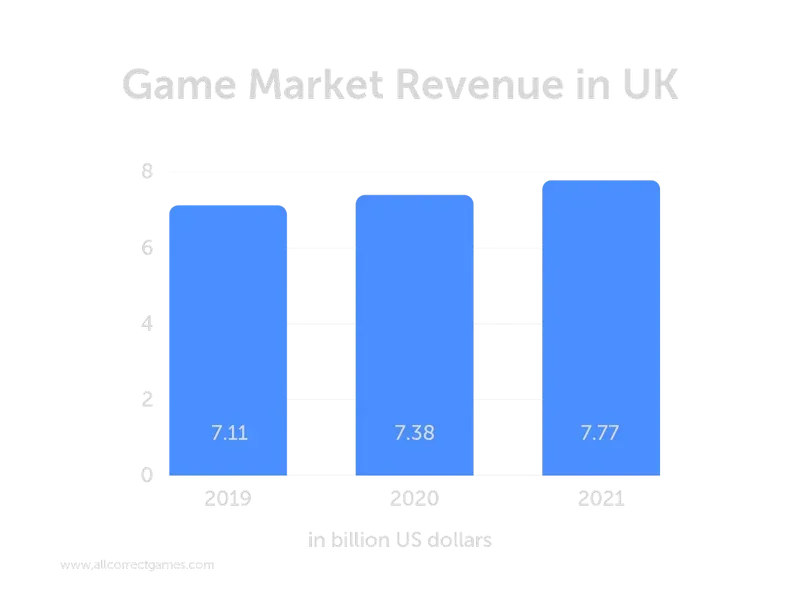In the ever-evolving landscape of digital entertainment, UK video game consumer rights have become a hot topic of discussion, particularly following a recent government petition titled “Stop Killing Games.” This petition, which has amassed over 12,000 signatures, seeks to protect gamers from the troubling practice of video game publishers disabling purchased games. As consumers increasingly rely on digital ownership, concerns surrounding consumer protection laws and the longevity of games are at the forefront. The UK government has acknowledged these issues but has indicated that no immediate changes to existing laws are planned. With the introduction of the Digital Markets, Competition, and Consumers (DMCC) Act 2024 on the horizon, the future of consumer rights in the gaming industry remains a critical area of focus.
When discussing the rights of gamers in the UK, alternative terms such as digital consumer protections and gaming ownership rights often come into play. The ongoing dialogue around these concepts highlights the urgency for robust regulations that safeguard consumers against unfair practices by publishers. As the market shifts towards digital-only formats, issues like game disabling and the clarity of digital transactions have raised significant concerns among players. The UK government’s response to the petition illustrates the tension between consumer expectations and the realities faced by video game companies. As stakeholders from various sectors engage in discussions, the need for comprehensive consumer protection laws that adapt to the digital age is becoming increasingly apparent.
Understanding UK Video Game Consumer Rights
The landscape of video game consumer rights in the UK has become a topic of increasing importance, especially as digital ownership becomes more prevalent. With the rise of digital downloads, consumers often find themselves in a precarious position when it comes to the rights associated with their purchases. The UK Government has established certain consumer protection laws that are meant to safeguard buyers. The Consumer Rights Act (CRA) of 2015, for instance, stipulates that digital products must meet certain quality standards, ensuring that gamers have recourse to repairs, replacements, or refunds if those standards are not met.
Despite these protections, there remains a significant gap in legislation regarding the disabling of games that individuals have purchased. As highlighted in the recent petition titled “Stop Killing Games,” there is a growing concern among gamers that video game publishers may disable access to purchased titles without adequate justification. This not only undermines the rights of consumers but raises questions about the concept of digital ownership in an era where access to games is increasingly tethered to online servers and publisher support.
The Implications of Game Disabling on Consumers
The practice of disabling games poses a direct threat to the rights of consumers in the UK. Many gamers invest significant amounts of money into their digital libraries, only to face the possibility of losing access to those games due to decisions made by publishers. The petition for stronger consumer protection laws reflects a widespread sentiment that these practices can be seen as a form of planned obsolescence, where publishers prioritize profit over the ongoing enjoyment of their products by consumers. Such actions not only frustrate players but can also lead to a loss of trust in video game publishers.
Furthermore, the implications of game disabling extend beyond just the loss of access. As the UK moves towards a more digital-centric gaming environment, the potential for abuse of power by publishers increases. If left unchecked, these practices could lead to a situation where consumers feel they have no ownership over the products they buy. The government’s acknowledgment of these concerns is a step in the right direction, but without concrete legislative changes, the situation remains precarious for gamers.
Current Consumer Protection Laws in the UK
The existing consumer protection laws in the UK, particularly the Consumer Rights Act (CRA) and the Consumer Protection from Unfair Trading Regulations (CPR), provide a framework aimed at safeguarding consumers in the marketplace. Under the CRA, digital products must be of satisfactory quality and fit for their intended purpose, which directly applies to video games. This means that if a game fails to perform as described, consumers have the right to seek remedies such as repairs or refunds. However, a significant limitation is that the law does not require publishers to maintain long-term support for older titles.
In conjunction with the CRA, the CPR helps ensure that consumers are provided with clear and accurate information about their purchases. This regulation is vital, as it protects consumers from misleading practices by publishers. Yet, as the gaming industry evolves, there is a pressing need for these laws to adapt to the unique challenges posed by digital ownership and the increasing prevalence of online-only games. The upcoming Digital Markets, Competition, and Consumers (DMCC) Act 2024 aims to address some of these issues, but the effectiveness of these changes will depend on the execution and enforcement of new regulations.
The Role of the Government in Protecting Gamers
The UK Government plays a crucial role in monitoring and enforcing consumer protection laws in the gaming industry. By engaging with industry representatives and consumer advocacy groups, the government aims to understand the impact of current practices on gamers. In their recent response to the petition, the government emphasized their commitment to observing the landscape and ensuring that existing laws, such as the CRA and CPR, are upheld. This proactive approach is essential in an industry where rapid technological advancements can outpace regulatory frameworks.
Moreover, the government’s acknowledgment of the financial burdens faced by publishers in supporting older titles highlights the delicate balance that must be maintained between business interests and consumer rights. While it is important to foster a thriving gaming industry, this cannot come at the expense of consumers’ rights to access and enjoy the games they have purchased. The upcoming DMCC Act is poised to redefine unfair trading practices, which may provide additional protections for consumers in the digital gaming space.
The Future of Digital Ownership in Gaming
As the gaming industry continues to shift towards digital ownership, the implications for consumer rights are profound. Digital ownership often translates to access rather than true ownership, leaving gamers vulnerable to the whims of publishers. With the increasing trend of game disabling, there is an urgent need for comprehensive legislation that clearly defines the rights of consumers in the context of digital products. This includes establishing boundaries around what constitutes ownership and the responsibilities of publishers regarding ongoing support.
The future of digital ownership also raises questions about the sustainability of digital libraries. As technology evolves, older games may become incompatible with new systems, leading to potential obsolescence. Consumers deserve clarity on their rights to access and preserve their digital purchases, and it is crucial for the government to consider these factors when revising consumer protection laws. Ensuring that gamers can enjoy their purchased titles without fear of arbitrary disabling is essential for fostering trust and loyalty in the gaming community.
Consumer Advocacy in the Gaming Industry
Consumer advocacy plays a vital role in the gaming industry, particularly regarding issues surrounding digital ownership and game disabling. Organizations advocating for gamer rights have been at the forefront of the movement to ensure that video game publishers are held accountable for their practices. The recent petition, which garnered over 12,000 signatures, is a testament to the power of collective consumer voices in pushing for change. These advocacy efforts highlight the need for stronger regulations to protect consumers from unfair practices.
In addition to petitions, consumer advocacy groups engage in discussions with industry stakeholders and government officials to raise awareness about the challenges faced by gamers. By fostering dialogue between consumers and publishers, these organizations aim to create a more transparent and equitable gaming ecosystem. Their efforts are critical in ensuring that the rights of consumers are not overlooked, especially as the industry continues to evolve towards a more digital-centric future.
Challenges Faced by Video Game Publishers
Video game publishers face a myriad of challenges in maintaining older titles, particularly as the gaming landscape shifts towards digital distribution. The financial implications of supporting legacy games can be daunting, especially when considering the costs associated with updating games for new platforms and technologies. Many publishers are hesitant to invest resources into older titles, leading to a situation where these games may eventually become unplayable. This creates a frustrating experience for consumers who expect to enjoy the games they have purchased without restrictions.
Moreover, the dwindling player base for older games further complicates the issue. As new titles are released and players migrate to the latest offerings, publishers may prioritize newer projects over maintaining support for older games. This trend raises questions about the sustainability of digital libraries and the long-term viability of consumer rights in the gaming industry. It is essential for both consumers and publishers to find common ground that balances the financial realities of game development with the rights of consumers to access their purchased content.
The Impact of Digital Markets on Consumer Rights
The growth of digital markets has transformed the way consumers interact with video games, presenting both opportunities and challenges. On one hand, digital distribution has made it easier for gamers to access a vast library of titles at their fingertips. However, this convenience comes with the risk of losing access to games due to publisher decisions, such as game disabling. As digital markets expand, the need for robust consumer protection laws becomes increasingly critical to ensure that gamers retain their rights.
Furthermore, the nature of digital ownership in these markets can lead to confusion regarding consumer rights. Unlike physical copies, which grant outright ownership, digital purchases often operate under licensing agreements that can be revoked at any time. This dynamic raises important questions about the future of consumer rights in the digital age, necessitating a comprehensive approach to legislation that safeguards gamers’ interests. The upcoming DMCC Act is a crucial step towards addressing these issues, but its implementation will be paramount in shaping the future of digital markets.
The Role of Trading Standards and CMA in Consumer Protection
Trading Standards and the Competition and Markets Authority (CMA) are integral to enforcing consumer protection laws in the UK, particularly in the context of video games. These organizations are responsible for ensuring that businesses comply with consumer rights legislation, including the provisions outlined in the Consumer Rights Act and the Consumer Protection from Unfair Trading Regulations. When issues arise, such as game disabling or misleading information about digital products, it is the role of these agencies to investigate and take appropriate action.
As the gaming industry faces new challenges with the rise of digital ownership, the responsibilities of Trading Standards and the CMA will become even more critical. Consumers need to know that they have a reliable avenue for recourse if they feel their rights have been violated. By actively monitoring the market and addressing consumer complaints, these agencies can help maintain a fair and transparent gaming environment that prioritizes the interests of consumers.
Frequently Asked Questions
What are UK video game consumer rights regarding game disabling by publishers?
UK video game consumer rights protect players from unfair practices, including the disabling of purchased games. Currently, the government has no plans to amend laws governing this issue, emphasizing that video game publishers must comply with existing consumer protection laws, such as the Consumer Rights Act (CRA) of 2015.
How do consumer protection laws apply to digital ownership of video games in the UK?
In the UK, consumer protection laws, such as the Consumer Rights Act, ensure that digital ownership of video games grants consumers rights such as receiving products that are of satisfactory quality and fit for purpose. If these standards are not met, players can seek repairs, replacements, or refunds.
What should I do if I experience issues with a disabled video game I purchased in the UK?
If you encounter issues with a disabled video game in the UK, your first step is to check if the game meets the standards outlined in the Consumer Rights Act. If not, you can contact the retailer for a refund, repair, or replacement. For further assistance, consider reaching out to Trading Standards or the Competition and Markets Authority (CMA).
Are there any new laws protecting consumers from video game publishers in the UK?
As of now, there are no new laws specifically protecting consumers from video game publishers disabling games. However, the upcoming Digital Markets, Competition, and Consumers (DMCC) Act 2024 aims to strengthen consumer protection laws and address unfair trading practices, which may benefit gamers in the future.
What is the UK government’s stance on supporting older video games?
The UK government acknowledges the challenges of supporting older video games due to financial burdens on publishers. While they emphasize that games should remain playable even without support, there are currently no legal obligations for companies to maintain older titles, according to existing consumer protection laws.
How can I ensure that my rights as a video game consumer are upheld in the UK?
To ensure your rights as a video game consumer are upheld in the UK, familiarize yourself with the Consumer Rights Act and the Consumer Protection from Unfair Trading Regulations. If you believe your rights have been violated, you can report issues to Trading Standards or file a complaint with the Competition and Markets Authority.
What impact does the Digital Markets, Competition, and Consumers (DMCC) Act have on video game consumer rights in the UK?
The DMCC Act, set to take effect in April 2025, will revise existing consumer protection laws in the UK, potentially strengthening video game consumer rights. It will empower the Secretary of State to redefine unfair trading practices, which may lead to better protections for consumers against video game publishers.
What recourse do consumers have against misleading information from video game publishers in the UK?
Under the Consumer Protection from Unfair Trading Regulations, consumers in the UK have recourse against misleading information from video game publishers. If a company provides false or incomplete information about a game, consumers can report this to Trading Standards or seek a resolution through consumer rights channels.
| Key Point | Details |
|---|---|
| Petition “Stop Killing Games” | Over 12,000 signatures, calling for laws to protect consumers from disabled games. |
Summary
UK video game consumer rights are a critical topic as the government has responded to growing concerns about the disabling of purchased games. Despite the petition advocating for new laws, the government currently has no plans to amend existing consumer laws. The established Consumer Rights Act of 2015 and Consumer Protection from Unfair Trading Regulations of 2008 provide some protections, but they do not compel companies to support older games. As the digital landscape evolves, the forthcoming Digital Markets, Competition, and Consumers Act 2024 aims to refine consumer protections and ensure fair trading practices in the gaming industry.








